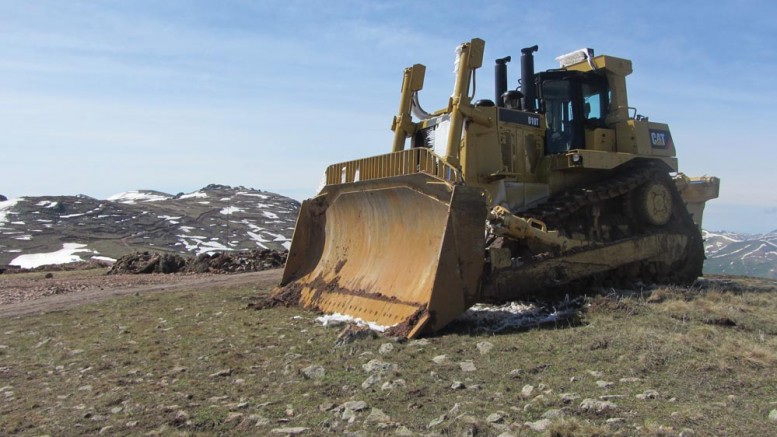Lydian International’s (TSX: LYD) Amulsar gold project in Armenia may have to go through a new environmental review — the fourth in the past year — after the country’s prime minister, Nikol Pashinyan, asked the environment authority to study the conclusions of a third-party audit published in mid-August.
The long-awaited public audit of the gold project concluded the risks posed by the proposed mine would be minimal and manageable, paving the way for the company to move forward with development. The announcement also triggered fresh protests against the Amulsar project, located in Armenia’s mountainous south.
Social unrest prompted Pashinyan to request that the Ministry of Environment review the study and determine whether or not another environmental impact assessment (EIA) was needed before allowing Lydian to go ahead.
“To hear that the prime minister has asked for consideration of whether any additional EIA process is required in respect to the Amulsar project is more than disappointing, particularly after the prime minister’s recent public statements,” the company’s interim president and CEO, Edward Sellers,said in a news release.

Lydian International’s Amulsar gold property in southern Armenia. Credit: Lydian International.
The Amulsar project has been illegally blocked since June 2018 by locals and environnmental activists, who claim the operation would threaten several endangered species. These include the world’s rarest big cat, the Caucasian leopard, of which there are thought to be only 10 left in Armenia.
Despite court rulings in Lydian’s favour, police have not been able to restore uninterrupted access to the mine site, and demonstrations against the project continue.
The situation, however, may be about to change, as the Armenian government told the company on Aug. 16 that it would launch a criminal probe into the blockades.
Based on the company’s estimates, not having access to supplies and people has cost Lydian $100,000 a day and the loss of key professionals, not counting that it had to lay off 83% of its workforce, and 1,100 contracted jobs.
“Dislocation-related costs will continue to be incurred until the illegal blockades are removed and unrestricted access for all purposes is available to the company,” Lydian said, while delivering second-quarter results in August. “Thereafter, the company anticipates additional time and funding will be needed for site restoration, sourcing of financing — if available — for completing construction, and working capital, until positive cash flows from operations can be achieved.”
Pressed by citizens, Armenia launched a three-stage assessment of Amulsar last September. The objective was to determine the project’s potential impact on wildlife in the Southern Caucasus mountain range, and, particularly, on water resources.
The proposed mine sits above a tunnel that supplies water to Lake Sevan, which is the largest freshwater lake in the Caucasus region. Scientists have warned that acidic drainage from the mine would inevitably seep into the lake, posing a threat to Armenia’s water system.
Amulsar is also near Jermuk, a spa town built around mineral springs, and the local economy is based on health tourism. Opponents to the mine claim construction dust has curbed the influx of visitors, and has also affected crops and grazing. Cattle, they say, have increasingly refused to drink water from streams on the mountain since construction started, which affects local livelihoods.

Lydian International’s Amulsar gold property in southern Armenia in June 2016. Credit: Lydian International.
As part of the third-party assessment of Amulsar, the results of which were released on Aug. 14, the government requested a review of the firm’s environmental and social impact assessment and EIA, even though the latter had been approved by the Armenian government before the firm began construction.
Lydian cheered the audit report’s findings, pointing out that Yura Ivanyan, the head of the special investigative committee’s Department for Investigation of Corruption-related Property Crimes and Cybercrimes, confirmed that there were no grounds for criminal charges against the company.
The Toronto-listed miner had said that if Armenia shut down Amulsar, it would take the case to international arbitration under bilateral investment protection treaties with the U.K. and Canada.
People familiar with the matter, however, noted that while the audit’s results were positive for Lydian, there are no guarantees the Armenian government would allow the company to move forward.
“Authorities may agree that there are no grounds for criminal proceedings, but they may not be as sure about the alleged impacts on Lake Sevan, leopards and others,” said one industry consultant, who requested anonymity.
Opposition to mining in Armenia has roots in a long list of environmental disasters caused by previous operations, as well as allegations of government corruption.
Lydian, however, has highlighted that — unlike previous projects — Amulsar is subject to the rigours of an independent advisory panel.
“We look forward to reading the full text of the audit report and are confident it will confirm Lydian’s prudential approach to environmental stewardship,” Sellers said in mid-August.
So far, the company has spent more than US$3 million on social projects — such as local businesses and infrastructure — to mitigate the potential impact of the gold mine. It has also vowed to establish a national park.
The country, in turn, is in desperate need of foreign investment, and jobs that properly run and managed mining projects can bring.
Minerals and metals make up half of Armenia’s exports, and mining accounted for 3% of the country’s economic output in 2017, government data shows.
The Amulsar mine would be a large-scale operation, with annual production averaging 225,000 oz. gold over an initial 10-year life.


Be the first to comment on "Armenian gov’t clears path for Lydian despite environmental concerns"